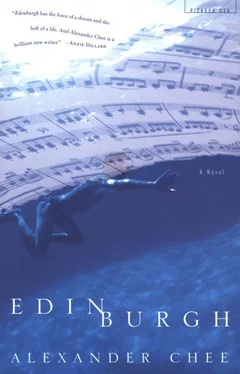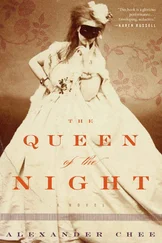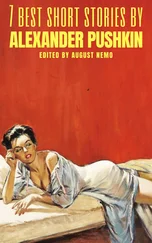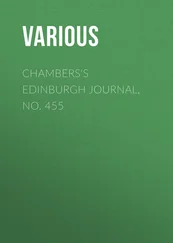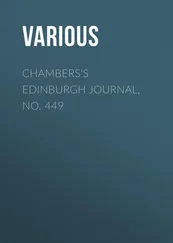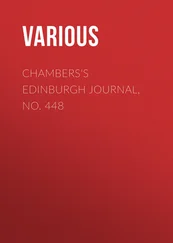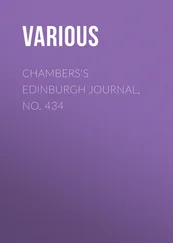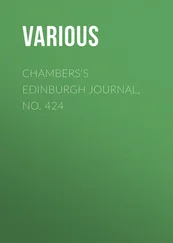Fee, she says, when I reintroduce myself. Shocking, how you’ve changed. She takes me inside her dark clean house.
Freddy’s my only one, she says, as I sit down. And she flips open a scrapbook. Pictures from the choir, the robes, the rope belts. All that smooth hair gleaming on head after head. Freddy Moran, the book says on the front. And she shows me the clippings of Peter’s and Zach’s obits.
I’d last seen Freddy in a restaurant in the Old Port. I was home from California, visiting, out to lunch with my mother, who sat, radiantly blond and happy to see her son again, across from me. It was a two-story seafood place, red carpets sanguine in the stained afternoon sunlight that tugged the gauzy sheers in the windows. Captains’ mirrors on the walls distorted us all into faraway and tiny shapes. I watched them for a while, thinking, those are the real mirrors.
He moved through my center of vision like a shadow, like a floater bouncing through the fluid of my eye. The room went black like a wick blown by the wind, returning quickly. It was him, I thought. He had turned into an elegantly attractive, clean-cut young man. His gait gave him away, his walk a little faster than the rest of him, as if his legs were always dragging him forward.
To my mother, I said only, as I rose, I have to go say hi to someone. She gave me a crooked smile and consented.
I found him in the downstairs, seated at the bar, a dark, wooden affair. He took me in as I entered, in a way I recognized. He was checking me out. Hi, Freddy, I said, and his eyes opened large, as if they needed more room.
Aphias, he said. Jesus.
As I stood in front of him, I realized I didn’t know what it was
I would say to him. I was so happy to see him, I had followed the feeling, and not arranged for anything to say. For it remained that we really had nothing to say to each other. Up until that instant, when language there was gathered, like condensation forming on a window, inside us both.
It’s been so long, I said. I don’t know where to start.
You look great, he said. I heard you were in California.
I’m visiting, I said. It’s been great out there. For me.
We were a study in contrasts. I’d adopted a shabby mode of old-man-style clothing in high school and never really gotten far from it. That morning I wore a black T-shirt, a pair of old suit trousers made from charcoal wool, and cordovan leather shoes, on the worn side. I knew I looked sallow from smoking too much. Freddy glowed, rosy-cheeked, smooth-faced, he smelled clean from where I stood, and was dressed in a red polo shirt and khaki pants, brand-new running shoes on his feet. He looked protected, from germs, depressions, extremes of poverty and misfortune. None of this was true, though. Just a marvelous show. Marvelous even as mine was drab.
It was good to see you, he said to me. Uncertain as he said it.
I went back to my table, the world altered. The lunch, flavorless, my mother soundless: I couldn’t hear her. I’d look up periodically and see her mouth moving, and I knew she was saying things, but I couldn’t hear any of it. All I could think of was what a terrible person I was. How I needed something terrible to happen to me. And years later, looking at the pictures of this in my head, moving in time, resolving one into the next, I can see how it never occurred to me that the reason Big Eric had gone to prison was because he was found, by the law, to be guilty of the crimes. Not me. I was not the one in jail. I wasn’t guilty. Was it enough, that the law said it?
Not then.
He’d been wandering the streets in his coats, no pants. In his apartment, his clothes were found, all of them soiled. He was wearing only the coat because it was his only clean thing to wear — he hadn’t lost all of his mind. His mother came and burned the clothes, packed up his things and tried to clean the apartment. He’d scraped all the plaster off the walls and painted it blue, she tells me before I leave her house. It looked as though someone had exploded in there. She shuts the book and goes into the other room.
When he gets out of the hospital, she says, returning with a mug of coffee for me, he’ll be coming back here.
In his bed at the hospital, he’s a tiny map to himself. A reduction. The dementia is now the least of it. I recalled a friend telling me how either his meds or his virus caused his face to hollow as it went for the fat under his skin. Freddy’s face has hollowed, and the bed rises a little in a way that is meant to be his body. I stand in the doorway, unsure of how to go into the room. This is the content of our first visit.
5
Penny presents her idea to me a few days after I return on a warm summer afternoon some ten years after we first met. She’s aged well, and here on the patio of the Provincetown seafood restaurant where she’s asked me to meet her to talk about this, age seems to have brought to her mostly poise. She’d quit smoking some years ago, reviving what turned out to be a rosy-cheeked complexion, and she’d stopped dying her hair that henna red, finally, and allowed it to be dark brown, a color more like that of a stone than a coin. She plucks at her hair as I approach her through the dozen Perrier umbrellas on the deck and she rises to kiss my cheek, so that I catch the faintest scent of sandalwood. I never think to wear scents, but I like hers and make a note of it. Hello, she says, against my ear.
You look fantastic, I say. Teaching hasn’t done a thing to you that’s bad.
She’s an art teacher now at a private school on the northern coast of Maine. Your fault, she says of it, when she first tells me. You always made it sound so beautiful up there. Where she is now, though, East Knot, is more beautiful than where I grew up. She’d helped me get settled in New York and had then left me there, and I resented it. I tell her so.
It is so beautiful, she says, and her eyes take in the view. I can’t imagine being anywhere else. She lifts a glass of iced tea and plucks at it. The men are far away though, she says, and surveys the men around us. Which, this being Provincetown, is mostly what’s here. Single men, she adds. Of a particular kind.
She tells me that she’s become the swim-team coach. I can’t believe it, I tell her. You hate and abhor athletics.
No. I hated and abhorred me, she says. And the tone is so sad, the phrasing so alien, I realize it is both true and something someone else has told her about herself. Like a check mark on a calendar, the ten years since our first meeting is duly noted. Penny, who had red hair and smoked and hated athletes now has brown hair, coaches swimming, smiles, and, she now begins telling me, wants to have a baby. Wants me to be the father.
The lunch arrives: fried fish sandwiches and fries, sparkling water. I am trying to place all of this. You want me to donate the sperm, I say.
Fee. I want to have a child, and when I think about what man I want the child to resemble, considering the amount of time I’ll be with him or her, I thought of my oldest friends. I’ve not known anyone as long as I’ve known you, besides my family. She smiles and scratches behind her ear. I’ll be with the child so long, and it only gets harder as I get older. I don’t want to wait to meet some guy I’ve not yet met. I’ve got a good job, secure, with housing, at a nontraditional school. I’ll be able to have the baby with me. How’s a baby at swim practice? Fine. There’s every reason to think it’s a good time for me. I’ve been healthy now for years, my gene plasm repaired, I hope, from the hard years.
I’ll think about it, I say. The hard years of course means the years when we first knew each other. And in the bright light of the patio, where everything seems to have a sharper harder edge and color, I can see that she will have her way in this, as she had her way in other things, that of what has changed about her, her ability to get me to do what she wants is not included in that.
Читать дальше
